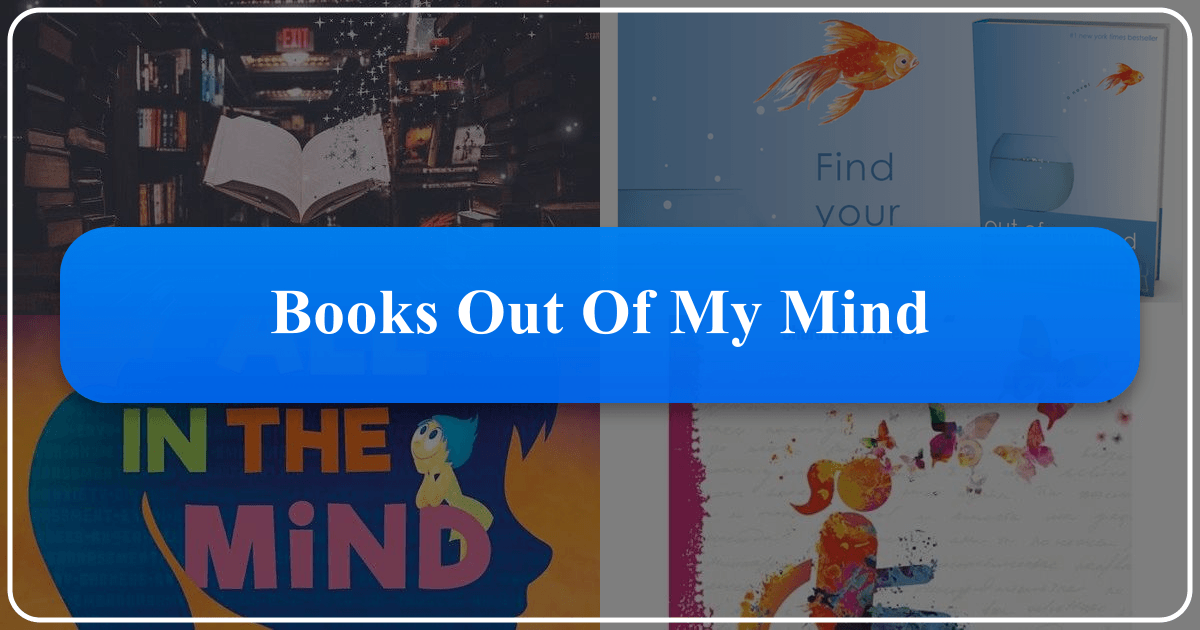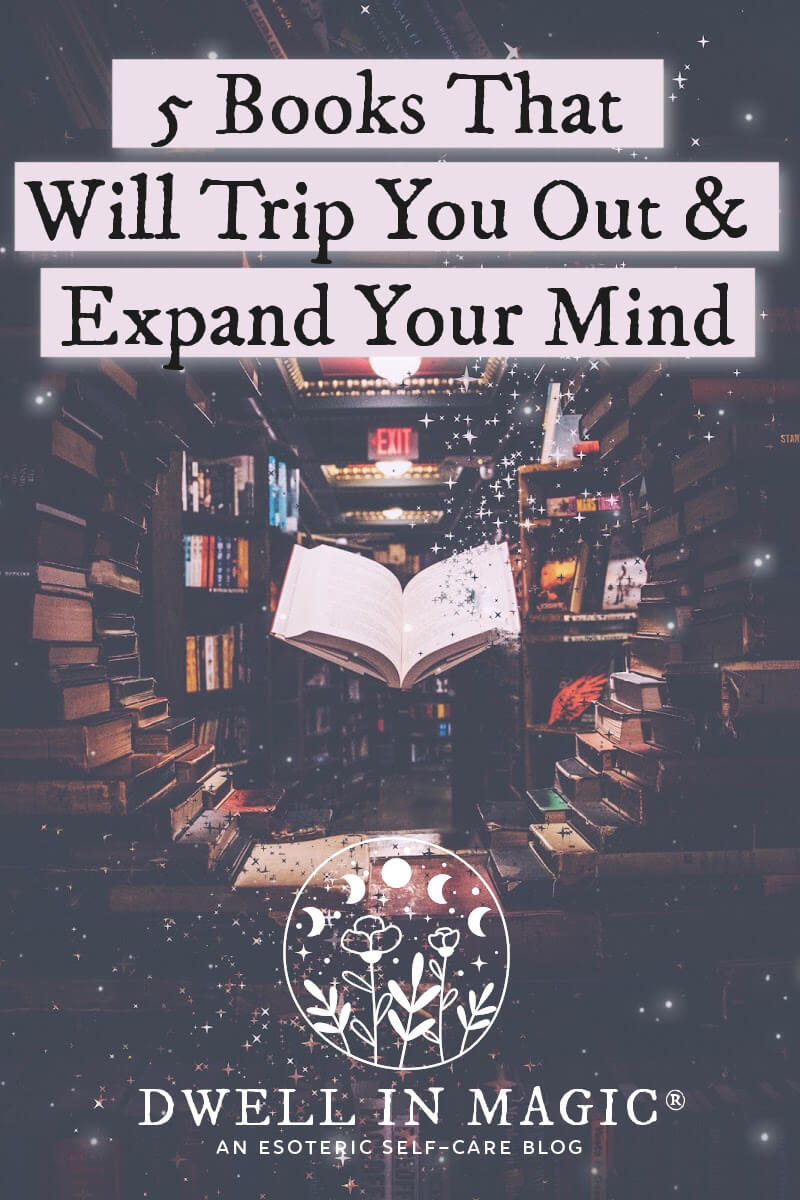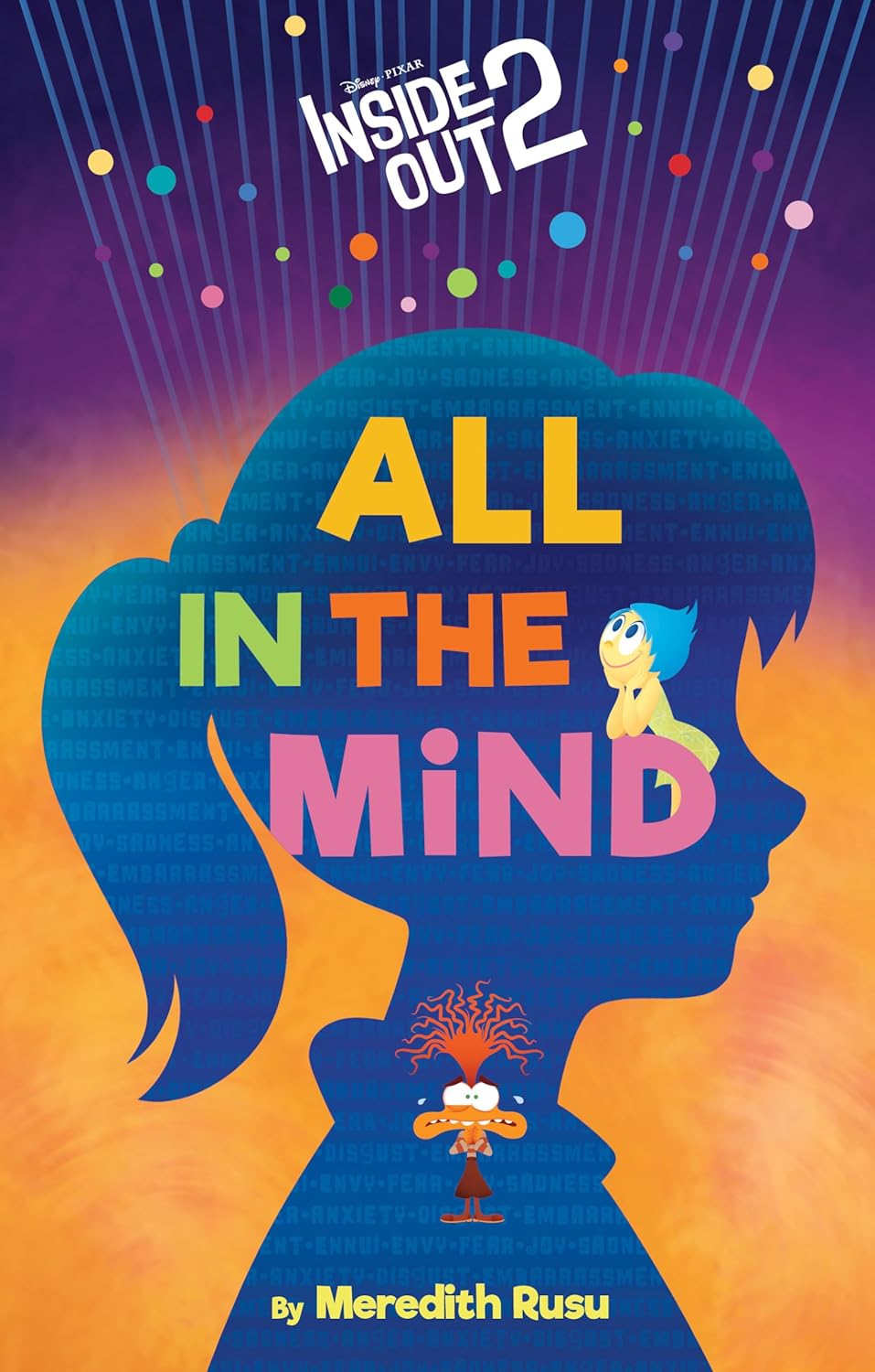Books Out of My Mind: Exploring the Literary Landscape

This expansive exploration delves into the multifaceted world of books, authors, reading, libraries, and their profound cultural impact. We’ll journey beyond the simple act of reading, examining the diverse genres, the creative minds behind the words, and the lasting influence literature holds on society. The journey begins with an in-depth look at the novel “Out of My Mind” by Sharon M. Draper, a powerful story that exemplifies many of the themes we will explore.
Out of My Mind: A Literary Touchstone
Sharon M. Draper’s “Out of My Mind” (2010) serves as a compelling starting point for our investigation. This New York Times bestseller, recommended for ages 10-14 and grades 5-8, tells the deeply moving story of Melody Brooks, an eleven-year-old girl with cerebral palsy. Melody’s physical limitations severely restrict her ability to communicate, trapping her brilliant mind within a body that struggles to obey her commands. She cannot speak, move freely, or write, leaving her largely misunderstood by the world around her.

Initially diagnosed as “profoundly retarded,” Melody faces significant challenges navigating the educational system. Placed in a special education class ill-suited to her advanced intellect, she endures daily lessons focused on the alphabet – repetitive exercises that frustrate her immensely. Her frustration is palpable to the reader; the narrative expertly conveys the intense internal life of a child whose potential remains untapped and unseen by those around her.

Melody’s journey isn’t solely one of struggle; it’s also a testament to resilience and the power of human connection. Her supportive parents tirelessly advocate for her, ensuring she receives the best possible education. Her neighbor, Mrs. V, provides crucial physical therapy, teaching Melody to move and maneuver her wheelchair independently, cultivating a critical sense of self-sufficiency.
A turning point arrives when Melody receives a communication device, a transformative tool that finally allows her to express her thoughts and feelings. This event underscores the importance of assistive technology in bridging the gap between individual potential and societal expectations. Her new teacher initiates an inclusion program, facilitating Melody’s participation in regular classes alongside her peers.
This transition into mainstream education introduces new social dynamics. While Melody forges a genuine friendship with Rose Spencer, she also encounters bullying from Molly and Claire, highlighting the pervasive nature of prejudice and the challenges faced by individuals who differ from the societal norm. Her participation in a school trivia team, the “Whiz Kids,” provides a powerful platform to showcase her exceptional intelligence, surprising her classmates and teachers alike.

The novel’s climax involves a tragic accident involving Melody’s younger sister, Penny. Melody’s inability to effectively communicate her warnings to her mother highlights the agonizing consequences of her disability and the profound emotional toll it takes. This event, however, ultimately serves as a catalyst for greater empathy and understanding within her classroom community.
“Out of My Mind” is not simply a story of overcoming adversity; it’s a powerful exploration of intelligence, communication, empathy, and the importance of recognizing and valuing the unique contributions of every individual, regardless of their physical limitations. The novel’s unflinching portrayal of Melody’s experiences and the subsequent accolades it received solidify its status as a significant work in children’s literature.
Exploring the World of Books: Genres and More
The success of “Out of My Mind” highlights the power of realistic fiction to connect with readers on an emotional level. This genre, alongside countless others, forms the bedrock of the book world. From the thrill of adventure stories to the introspective depth of literary fiction, the sheer diversity of genres caters to a multitude of tastes and preferences. Understanding the nuances of each genre – from classic literature to contemporary bestsellers and new releases – is key to appreciating the breadth and depth of the literary landscape.
Book reviews, critical analyses of literary works, provide valuable insights into the merit and significance of books. These reviews, whether by professional critics or passionate readers, offer perspectives that help readers navigate the vast selection available, guiding them toward works that align with their interests and preferences.
A Closer Look at Genres
Exploring the world of books involves understanding the distinct characteristics of different genres. Genres like:
- Realistic Fiction: Stories grounded in everyday life, often exploring relatable themes and emotions, like in “Out of My Mind.”
- Fantasy: Imaginative worlds with magical elements and fantastical creatures, often addressing themes of good versus evil or self-discovery.
- Science Fiction: Speculative narratives exploring futuristic technology, societal structures, and scientific advancements.
- Historical Fiction: Fictional narratives set in the past, enriching our understanding of history and human experiences.
- Mystery: Stories centered around solving a crime or unraveling a puzzle, often engaging readers with suspense and intrigue.
- Adventure: Narratives focused on exciting journeys, physical challenges, and overcoming obstacles.
- Biography: Accounts of a person’s life, offering insights into their experiences, accomplishments, and influence.
- Non-fiction: Factual accounts of real events, people, and phenomena.
Each genre possesses unique conventions and narrative structures, creating a diverse and engaging literary landscape.
Authors: The Architects of Stories
Behind every successful book lies the vision and skill of an author. Exploring the world of authors involves examining their biographies, tracing the evolution of their writing styles, and delving into their sources of inspiration. Authors’ biographies often reveal the life experiences and personal journeys that shape their creative output. Understanding their writing style—their use of language, narrative techniques, and character development—is crucial to appreciating the craft of storytelling. Their inspirations, the ideas, events, and people that spark their creativity, offer insights into the origins of their narratives. Finally, examining their famous works, their most renowned and influential books, allows us to gauge their contribution to the literary canon.
Understanding Authorial Intent
Analyzing an author’s background, influences, and writing style enhances our understanding of their work. Consider:
- Biographical Context: How did the author’s life experiences shape their writing?
- Stylistic Choices: What narrative techniques and language does the author employ?
- Thematic Concerns: What recurring themes or ideas dominate the author’s body of work?
- Evolution of Style: How has the author’s style evolved over time?
These elements, when considered together, provide a more complete appreciation of the author’s contribution to the literary world.
Reading and Learning: The Transformative Power of Books
The act of reading extends far beyond simple entertainment. It provides access to knowledge, fosters critical thinking, and imparts valuable life lessons. Books offer summaries of complex information, making it more accessible to a wider audience. They possess educational value, enriching readers’ understanding of various subjects and topics. Through their exploration of relatable characters and compelling narratives, they convey important life lessons that can shape readers’ perspectives and guide their actions. Reading habits, developed over time, impact not only comprehension skills but also cognitive development and overall well-being.
Cultivating a Love of Reading
Encouraging a lifelong love of reading requires:
- Discovering Diverse Genres: Exposing readers to a variety of books to broaden their horizons.
- Finding Relatable Characters: Identifying stories and characters that resonate with their personal experiences.
- Exploring Thematic Depth: Understanding the underlying messages and values embedded within narratives.
- Establishing Consistent Habits: Creating time and space dedicated to reading regularly.
Libraries: The Keepers of Knowledge
Libraries, both physical and digital, serve as essential repositories of information and cultural heritage. Public libraries provide free access to books, periodicals, and digital resources, democratizing access to knowledge for all members of society. Digital libraries offer convenient access to vast collections of books and other materials via the internet. Rare collections and archives safeguard unique historical documents and literary treasures, preserving them for future generations.
The Evolving Role of Libraries
The role of libraries has evolved over time, encompassing:
- Physical Collections: Vast stores of books, journals, and other traditional media.
- Digital Resources: Online databases, e-books, and other digital materials.
- Community Hubs: Spaces for learning, collaboration, and social interaction.
- Preservation of Heritage: Safeguarding rare books, manuscripts, and archival materials.
Cultural Impact: Literature’s Enduring Legacy
Literature holds a profound cultural impact, shaping our understanding of the world and influencing various forms of artistic expression. Its literary influence stretches across centuries and cultures, impacting the development of language, thought, and social movements. Adaptations of literary works into film, theater, and other media expand their reach and influence. Awards recognizing literary excellence and outstanding contributions highlight the importance and value of literature. Finally, literary communities and discussion forums foster appreciation, encourage thoughtful engagement, and facilitate dialogue among readers and writers alike.
The Ripple Effect of Literature
The cultural impact of literature extends to:
- Literary Movements: Shaping evolving styles, forms, and themes in writing.
- Artistic Adaptations: Inspiring films, plays, and other creative interpretations.
- Social Commentary: Offering insights into social issues, injustices, and human experience.
- Preservation of Culture: Capturing the language, traditions, and values of a particular time and place.
The study of literature, therefore, is not merely an academic pursuit; it’s an exploration of human experience, creativity, and the profound impact stories have on our lives and cultures. From the powerful narrative of “Out of My Mind” to the vast and varied world of books, authors, and libraries, we’ve only scratched the surface of this rich and evolving landscape. The continued exploration of these elements is vital to understanding and appreciating the lasting power of literature.